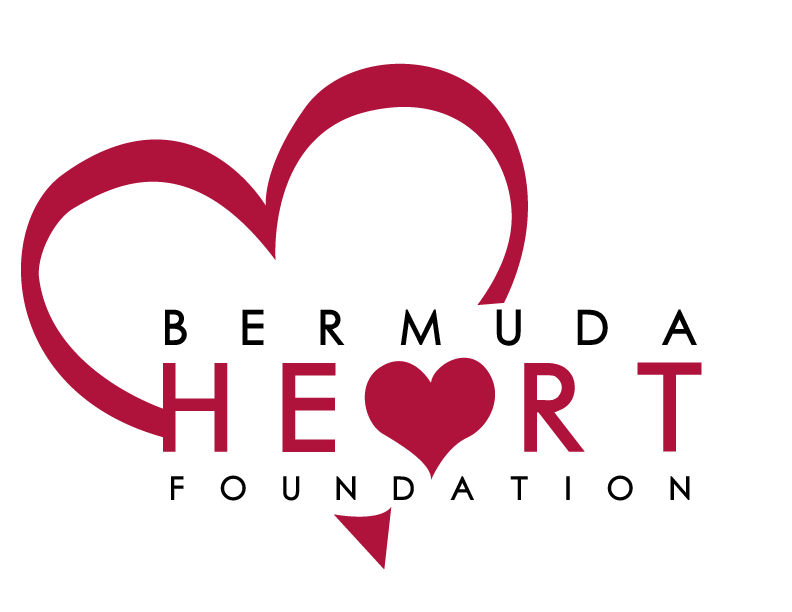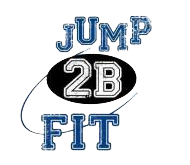Diets Don’t Work
It’s no wonder that January leads to the biggest annual financial boom to the health and diet industries, who love to capitalize on all those New Year’s resolutions. Like wildebeests in the Serengeti, millions run to their local health clubs to sign up for a new gym membership or find themselves in their local community centers at a beginner’s yoga class. Here, they make the big mistake of looking up during the downward dog pose – UGH. Worst of all, people start eating and drinking things they don’t enjoy, such as quinoa or wheatgrass, or they seriously considering taking that new fad diet pill.
Let’s face it, trying to lose weight royally sucks. And yet you keep believing that one day soon The Change Fairy will sprinkle her magic dust over you and you’ll all of a sudden morph into a slim person with thin thighs, tight abs and one heck of a totally rocking body. But sadly, the magic never lasts for long, and reality quickly settles back in. According to Newswire, 37% of people in 2015 made New Year’s resolutions to get fit and healthy, and 35% promised to lose weight. It’s no big surprise that 80% of those people failed to keep their New Year’s resolutions.
People have come to accept that disappointment, pain, deprivation, and starvation are part of the diet journey, so they soldier on with their resolution, feeling overwhelmed and unimpressed with these new plans. They can’t seem to make it to the gym regularly, which is “fine” because they have not fully recovered from the pain of the last workout. A total mashup of feelings begins to dominate their days. They are hungry, in pain and quickly become undone by the whole diet process.
Can you identify with this plight? Does your doctor tell you that according to the BMI, you are obese and need to lose a couple of pounds? Do you look in the mirror at your body and not like what you see? Everything from movies to the Internet, magazines, television commercials, advertisements and even well-meaning friends are challenging you to lose weight, but every time you try, it is more of an exercise in futility. You start off strong with a new diet plan but soon begin to have challenges that derail you. The average diet lasts for approximately two weeks. The average woman will try to diet, unsuccessfully, at least four times per year. Sixty-five percent of people that do actually lose weight on a diet will gain all their weight back and more. The struggle is real; you are not alone.
The diet industry is built on peoples’ recurring failures. They know that you are highly unlikely to stick with any given trend, and thus repackage their offerings year to year, swearing up and down that their “revolutionary” new solution is the “game-changer” that will finally make you fit and healthy. This is bogus. The only way to retain good health in the long term is through lifestyle modification, which involves a complete overhaul of your day-to-day habits and a commitment to sound, realistic principles that let you enjoy the things you like (in moderation) while maintaining a balance of healthy eating and exercise.
Remember Diets. Do. Not. Work. More in our next post.
Did you know that heart disease is a significant killer in Bermuda and around the globe? This can hardly be a surprise as a high percentage of the population consumes vast amounts of fat-laden processed foods and do little to no exercise. The combination of fast, greasy food and physical activity limited to a walk to the car, or picking up a TV remote will guarantee severe heart conditions in the future.
Bermudians are dying younger and younger each year due to inactivity and poor food choices. We are literally eating ourselves to into an early grave.
Let me ask you some questions; how would you like some time off? You will be given an all-expenses-paid two to three week trip with three complimentary meals a day. You will have people waiting on your hand and foot, day and night. However, you will have to learn how to use a bedpan or get fitted with adult diapers, but that ok, isn’t it? Is a prolonged stay in a hospital in your future because you’ve had a heart attack?
You will start eating right tomorrow, you will begin to exercise tomorrow; you will care more about your heart than you do about that plate of fried foods tomorrow. Do your tomorrows add up to a month or more; the hospital will be there for you tomorrow. That’s if you are lucky, and you survive your heart attack. If this is not your ideal way to spend your time off, what steps are you going to do to ensure this isn’t your future. If you continue making poor food and lifestyle choices, you can say goodbye to your health, and you will sorely miss it when it’s gone. Living a healthy life does not mean you have to give up the foods you love; you just need to manage how you move and the foods you consume appropriately.
To avoid extended hospital stay’s, this is what you need to do:
- Care about what you eat and how often you are eating it.
- Move it or lose it. WALK, simply walk 15mins in one direction stop, turn around and go back, and you’re done.
- Remember, stress kills…..
- If you smoke, STOP
If you need help, the Bermuda Heart Foundation’s CORE Center will teach you how to live life in a heart-healthy way. For more information call……232-2673
Heart attacks don’t always strike out of the blue — there are many symptoms we can watch for in the days and weeks leading up to an attack. But the symptoms may not be the ones we expect. And they can be different in men and women, and different still in older adults. Last year, for example, a landmark study by the National Institutes of Health (NIH) published in Circulation: Journal of the American Heart Institute found that 95 percent of women who’d had heart attacks reported experiencing symptoms in the weeks and months before the attack — but the symptoms weren’t the expected chest pain, so they went unrecognized.
Don’t let that happen to you. Here, 10 heart symptoms you’re likely to ignore — and shouldn’t.
1. Indigestion or nausea
One of the most oft-overlooked signs of a heart attack is nausea and stomach pain. Symptoms can range from mild indigestion to severe nausea, cramping, and vomiting. Others experience a cramping-style ache in the upper belly. Women and adults over age 60 are more likely to experience this symptom and not recognize it as tied to cardiac health.
Most cases of stomach ache and nausea aren’t caused by a heart attack, of course. But watch out for this sign by becoming familiar with your own digestive habits; pay attention when anything seems out of the ordinary, particularly if it comes on suddenly and you haven’t been exposed to stomach flu and haven’t eaten anything out of the ordinary.
2. Jaw, ear, neck, or shoulder pain
A sharp pain and numbness in the chest, shoulder, and arm is an indicator of heart attack, but many people don’t experience heart attack pain this way at all. Instead, they may feel pain in the neck or shoulder area, or it may feel like it’s running along the jaw and up by the ear. Some women specifically report feeling the pain between their shoulder blades.
A telltale sign: The pain comes and goes, rather than persisting unrelieved, as a pulled muscle would. This can make the pain both easy to overlook and difficult to pinpoint. You may notice pain in your neck one day, none the next day, then after that it might have moved to your ear and jaw. If you notice pain that seems to move or radiate upwards and out, this is important to bring to your doctor’s attention.
3. Sexual dysfunction
Having trouble achieving or keeping erections is common in men with coronary artery disease, but they may not make the connection. Just as arteries around the heart can narrow and harden, so can those that supply the penis — and because those arteries are smaller, they may show damage sooner. One survey of European men being treated for cardiovascular disease found that two out of three had suffered from erectile dysfunction before they were ever diagnosed with heart trouble.
4. Exhaustion or fatigue
A sense of crushing fatigue that lasts for several days is another sign of heart trouble that’s all too often overlooked or explained away. Women, in particular, often look back after a heart attack and mention this symptom. More than 70 percent of women in last year’s NIH study, for example, reported extreme fatigue in the weeks or months prior to their heart attack.
The key here is that the fatigue is unusually strong — not the kind of tiredness you can power through but the kind that lays you flat out in bed. If you’re normally a fairly energetic person and suddenly feel sidelined by fatigue, a call to your doctor is in order.
5. Breathlessness and dizziness
When your heart isn’t getting enough blood, it also isn’t getting enough oxygen. And when there’s not enough oxygen circulating in your blood, the result is feeling unable to draw a deep, satisfying breath — the same feeling you get when you’re at high elevation. Additional symptoms can be light-headedness and dizziness. But sadly, people don’t attribute this symptom to heart disease, because they associate breathing with the lungs, not the heart.
In last year’s NIH study, more than 40 percent of women heart attack victims remembered experiencing this symptom. A common description of the feeling: “I couldn’t catch my breath while walking up the driveway.”
6. Leg swelling or pain
When the heart muscle isn’t functioning properly, waste products aren’t carried away from tissues by the blood, and the result can be edema, or swelling caused by fluid retention. Edema usually starts in the feet, ankles, and legs because they’re furthest from the heart, where circulation is poorer. In addition, when tissues don’t get enough blood, it can lead to a painful condition called ischemia. Bring swelling and pain to the attention of your doctor.
7. Sleeplessness, insomnia, and anxiety
This is an odd one doctors can’t yet explain. Those who’ve had heart attacks often remember experiencing a sudden, unexplained inability to fall asleep or stay asleep during the month or weeks before their heart attack. (Note: If you already experience insomnia regularly, this symptom can be hard to distinguish.)
Patients often report the feeling as one of being “keyed up” and wound tight; they remember lying in bed with racing thoughts and sometimes a racing heart. In the NIH report, many of the women surveyed reported feeling a sense of “impending doom,” as if a disaster were about to occur. If you don’t normally have trouble sleeping and begin to experience acute insomnia and anxiety for unexplained reasons, speak with your doctor.
8. Flu-like symptoms
Clammy, sweaty skin, along with feeling light-headed, fatigued, and weak, leads some people to believe they’re coming down with the flu when, in fact, they’re having a heart attack. Even the feeling of heaviness or pressure in the chest — typical of some people’s experience in a heart attack — may be confused with having a chest cold or the flu.
If you experience severe flu-like symptoms that don’t quite add up to the flu (no high temperature, for example), call your doctor or advice nurse to talk it over. Watch out also for persistent wheezing or chronic coughing that doesn’t resolve itself; that can be a sign of heart disease, experts say. Patients sometimes attribute these symptoms to a cold or flu, asthma, or lung disease when what’s happening is that poor circulation is causing fluid to accumulate in the lungs.
9. Rapid-fire pulse or heart rate
One little-known symptom that sometimes predates a heart attack is known as ventricular tachycardia, more commonly described as rapid and irregular pulse and heart rate. During these episodes, which come on suddenly, you feel as if your heart is beating very fast and hard, like you just ran up a hill — except you didn’t. “I’d look down and I could actually see my heart pounding,” one person recalled. It can last just a few seconds or longer; if longer, you may also notice dizziness and weakness.
Some patients confuse these episodes with panic attacks. Rapid pulse and heartbeat that aren’t brought on by exertion always signal an issue to bring to your doctor’s attention.
10. You just don’t feel like yourself
Heart attacks in older adults (especially those in their 80s and beyond, or in those who have dementia or multiple health conditions), can mimic many other conditions. But an overall theme heard from those whose loved ones suffered heart attacks is that in the days leading up to and after a cardiac event, they “just didn’t seem like themselves.”
A good rule of thumb, experts say, is to watch for clusters of symptoms that come on all at once and aren’t typical of your normal experience. For example, a normally alert, energetic person suddenly begins to have muddled thinking, memory loss, deep fatigue, and a sense of being “out of it.” The underlying cause could be something as simple as a urinary tract infection, but it could also be a heart attack. If your body is doing unusual things and you just don’t feel “right,” don’t wait. See a doctor and ask for a thorough work-up.
And if you have any risk factors for cardiac disease, such as high blood pressure, high cholesterol, smoking, or family history of heart disease, make sure the doctor knows about those issues, too.









